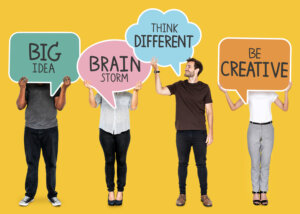© Copyright Carter McNamara, MBA, PhD, Authenticity Consulting, LLC.
Market research shows that we adults are enthralled with courses. We love to
learn! Trainers and developers are responding with an explosion of new courses,
and these are costing more than ever. Therefore, it’s critical to know
your learning needs and how to meet them
Sections of This Topic Include
Preparation
When Considering a Course
During the Course
Evaluation
Follow-Up
Learn More in the Library’s Blogs Related to Personal Development
In addition to the articles on this current page, also see the following blogs
that have posts related to Personal Development. Scan down the blog’s page to
see various posts. Also, see the section “Recent Blog Posts” in the
sidebar of the blog or click on “next” near the bottom of a post in
the blog. The blog also links to numerous free related resources.
Library’s Career
Management Blog
Library’s
Coaching Blog
Preparation
· Too often, we decide what courses to take by scanning
a list of new courses. This is like picking dessert from a dessert
tray: you pick what you want more than what you need. Reflect
on your needs. What do you need for your career? Is there a particular
problem you’re facing in your career, home life, or job?
· Try to specify your needs in terms of outcomes or impacts,
not in terms of activities. For example, seek certain enhanced
skills, knowledge, perceptions, etc. Think about how you’ll
know if these outcomes were reached or not.
· Don’t just look at courses as a means to achieve your
preferred outcomes. Too often, we think we only can learn in classrooms
from an expert who lectures us. With today’s technologies,
we have immediate access to a wide range of materials and information.
“Homeschooling” is an increasingly useful technique
for learning.
· Think about how much you’ve really used materials
from earlier courses. For example, are you the kind of person
who takes a course and brings materials home to sit on a shelf
and never be looked at again? If so, what can you do to change?
When Considering a Course
· Look at the outcomes promised from the course. Do
they match your needs? Do the objectives and learning activities
sound like they’ll really produce those outcomes promised
by the course?
· Call the instructor and discuss your needs. Find out
if he or she believes the course will be useful. Beware the person
with a big hammer — to them, everyone is a nail.
· Get a biography of the instructor. What evidence do you
see that the instructor really has the expertise to be teaching
that course and subject matter?
· Attempt to get an outline of the course. Is the course
well organized? Does the course include sufficient time for questions
and for evaluation? Are materials provided to support lectures?
· Ask the school or the instructor for a copy of the form
used to evaluate the courses and the instructor. What objectives
are measured by the form? These objectives are often those that
the instructor will try to reach.
· Assess if the course will be jam-packed and very hectic.
If so, there will probably be little time for questions and answers.
You might be overwhelmed with a “data dump” of information
and little knowledge.
· See if there’s a discount to take the course a second
time if needed. Occasionally we don’t get enough from a course
even if the instructor does a fine job and the materials were
very useful.
During the Course
· Be sure you’re comfortable and can hear the instructor.
Sit at the front of the room if possible.
· Take notes by recording important points and conclusions,
not everything the instructor says. Note if the instructor is
speaking from a set of materials, in which case, you may not need
to record all the important points because the materials may already
contain those points.
· Get a list of who’s in the course. Ask some classmates
if they are interested in getting together to help each other
apply the materials and exchange feedback about their experiences.
· Is the instructor following the agenda? Will promised
topics to be discussed with sufficient time?
· Find out how to get in touch with the instructor at a
later time if needed. You may have a question or two about how
to apply materials. The instructor may appreciate your feedback.
· Ask questions if you don’t understand the instructor
or what’s going on! This may be the most useful activity
for getting the most out of your course. Speak up if you wonder
whether information or materials seem realistic or practical.
Evaluation
· You can learn a lot from evaluation! The most useful
forms of evaluation include time at the end of the course for learners
to discuss the quality of the course. At the beginning of the
course, ask the instructor to try leave sufficient time for this.
· Too often, evaluations are based on our feelings about
our experiences in the course, rather than if the course achieved
its objectives or not. Carefully consider whether the course met
its objectives or not.
Follow-Up
· Very soon after the course, review your notes and
the materials. This will ensure your notes are complete and help
you internalize the materials.
· Mark your calendar for three months out. At that time,
ask yourself if you’re using materials from the course. If
not, why not? What can you learn from this?
Also, consider
Adult
Learning
Concentrating
Continuous
Learning
Creative
Thinking
Critical
Thinking
Learning
in Courses
Defining
Learning
Group Learning
How
to Study
Key
Terms in Learning
Improving
Your Learning
Improving
Your Thinking
Learning Styles
Memorizing
Mindfulness
Mindsets
Online
Learning
Reading
Skills
Reframing
Self-Reflection
Self-Assessments
Systems
Thinking
Taking
Tests
Types
of Learning
Using
Study Guides
Writing
Skills
How to Get
the Most Out of Your Courses
Getting
the Most from Online Classes
Also, consider
Personal
Productivity
Personal
Wellness
For the Category of Personal Development:
To round out your knowledge of this Library topic, you may want to review some related topics, available from the link below. Each of the related topics includes free, online resources.
Also, scan the Recommended Books listed below. They have been selected for their relevance and highly practical nature.
 Sections of this topic
Sections of this topic
















